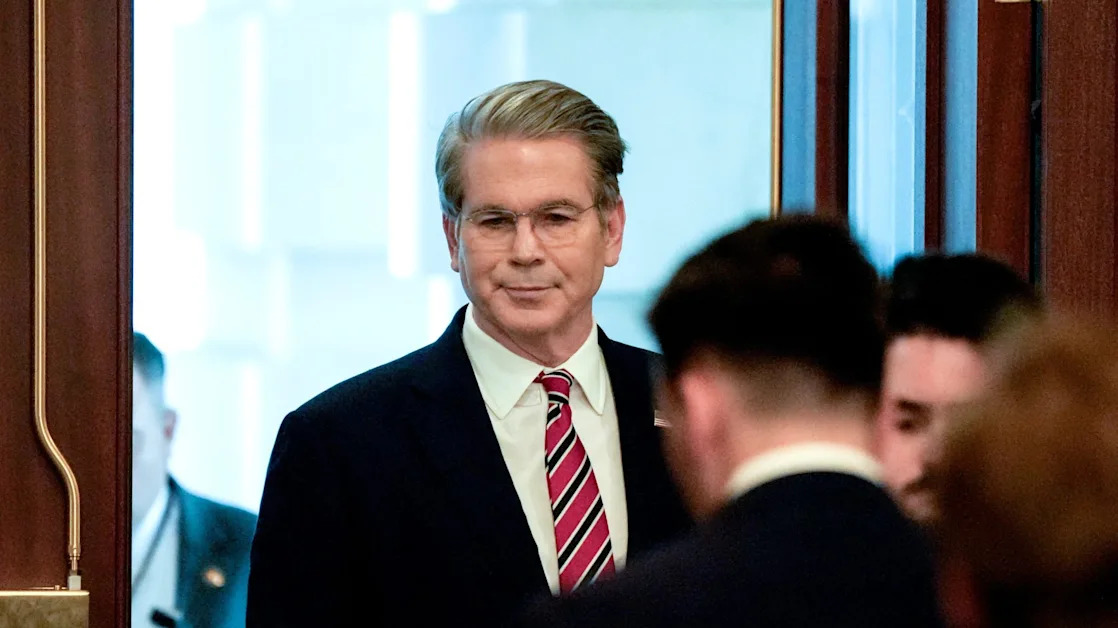
Treasury Secretary Scott Bessent denies bond market panic pushed Trump into backing down on tariffs
Treasury Secretary Scott Bessent denied Wednesday that bond market volatility had forced the president into putting a 90-day pause on most trade tariffs .
Following President Trump’s announcement that most of the tariffs he’d planned for U.S. trade partners would now not go into effect pending further negotiations, Bessent was asked by reporters at the White House whether a shocking rise in bond yields that sparked fears about a liquidity crisis and questions about whether Treasuries were losing their safe-haven status had pushed Trump into the partial retreat.
“This was driven by the president’s strategy,” the Treasury secretary said. “He and I had a long talk on Sunday, and this was his strategy all along.”
Stocks jumped after Trump announced the 90-day pause, in which most countries (except China) will be moved back to a baseline 10% tax on imports.
“This was the news we and everyone on the Street [were] waiting for as the pressure on Trump took on a life of its own,” Dan Ives and Sam Brandeis of Wedbush Securities wrote in a note Wednesday afternoon. “And the eye-popping rise of the 10-year yield was ultimately too much to hold his line on the self-inflicted Armageddon tariff unleashed at midnight. Now we would expect massive negotiations across the board over the coming months including China being front and center as the biggest wild card.”
Earlier, Bessent claimed that the bond market would calm down as highly leveraged bond trades unwound. He also noted that this type of deleveraging was normal and expected.
A select group of hedge funds profit handsomely from the so-called basis trade , which involves heavy borrowing to take advantage of tiny price discrepancies between Treasuries and futures linked to those bonds. Typically, this helps keep money markets humming. When the $1 trillion trade unwinds, however, yields surge as the market struggles to absorb a massive increase in the supply of Treasuries.
In an interview with Fox Business, Bessent said he’s seen a similar story play out many times during his hedge fund career.
“There’s one of these deleveraging convulsions that’s going on right now in the markets,” he said. “It’s in the fixed-income market. There are some very large leverage players who are experiencing losses that are having to deleverage.”
Investors initially piled into Treasuries last week as the stock market plunged after President Donald Trump unveiled sweeping “ reciprocal tariffs ,” which went into effect Wednesday morning. Early Monday, the yield on the benchmark 10-year Treasury note fell below 4% for the first time since October, down from about 4.8% in early January. A fixed-income selloff soon followed, however, and the 10-year yield—which rises as the price of the bond falls—surged above 4.5% Wednesday morning before retreating near the 4.4% mark as a successful Treasury auction eased concerns about demand for U.S. debt, per CNBC.